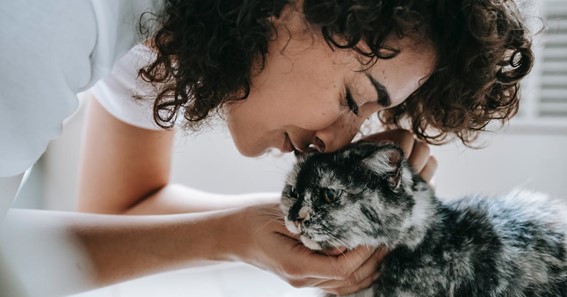When it comes to caring for your cat after surgery, proper knowledge and understanding are the keys to a healthy recovery. What you do post-surgery could determine how well your kitty gets back on their feet again.
It can be a tough time, but with the right guidance, you can provide the best care and make this journey as comfortable as possible for both of you!
Read on for a few tips you could use to help your favorite feline companion heal and recover after going through surgery.
Common Challenges Your Cat Might Experience After Surgery
Pain is perhaps one of the most common challenges after a cat’s surgical procedure. At times, it may lead to decreased appetite and mobility issues. Cats may also experience post-surgery anxiety or become overly sensitive to touch or movement around the operated area.
Furthermore, they might be prone to infection if proper care has not been taken, which makes it essential that owners maintain good hygiene practices while caring for their cats’ wounds. It also pays to look out for signs of depression or fatigue in your cat, as these could potentially indicate an underlying medical concern requiring veterinary attention.
Click here – What Is Vanderbilt’s Mascot?
Proper Nutrition for Post-Surgery Care: Enhancing Recovery through Diet
Nutrition plays a giant role in a cat’s recovery after surgery and should never be overlooked. The right nutrients support their immune system and assist their body in healing faster. For example, high-quality proteins with the correct fats and vitamins can fortify your pet’s weakened state of health post-surgery.
Providing healthy meals that are suitable for cats who are recovering from surgery is recommended as it will help them gain strength quickly. And if your cat is struggling to eat after surgery, wet cat food comes highly recommended as it’s easier to chew and swallow. A detailed guide on veterinarians.org recently revealed the various types of wet cat foods available, and what to look for in terms of the ingredients.
As for the composition, avoid feeding your cat too much carbohydrate-heavy foods like pasta or sugary treats, which can do more harm than good. Also, make sure to monitor their portions to ensure they don’t overeat.
Reduce Stress and Help Your Kitty Relax After Surgery
The recovery process can be especially challenging if your cat is prone to stress. While it’s not always possible to completely eliminate the causes of stress, there are some things you can do to help your kitty relax more in their post-surgery days.
Firstly, keep a gentle tone when talking about them or interacting with them. Sudden loud noises or forceful movements should be avoided where possible as these are definite triggers for cats who feel anxious easily. At the very least, make sure to provide regular quiet time away from too much noise and commotion, along with access to fresh air and good quality food or treats…
Create a space in your home where it’s just them and their most beloved toys. Spend extra time with them when possible, engaging in gentle play and activities such as grooming or light massage. All these can help ease stress levels while they heal nicely.
Managing Pain and Promote Healthy Mobility Following Surgery
Cats rarely show signs of pain after surgery, but that doesn’t mean they’re not feeling any. You can help your cat to stay comfortable by providing suitable post-surgery care. Depending on your vet’s recommendations, this includes ensuring adequate rest, medications such as anti-inflammatory drugs or antibiotics, and physical therapies like massage or joint mobilization.
You will also want to look out for any signs of immobility, such as reduced movement, redness, or stiffness. Your vet can provide you with the best approach to improve mobility and manage your cat’s pain in case you find these symptoms in your feline buddy.
Click here – What Is A Datum Point?
Maximizing the Benefits of Exercise: What You Can and Can’t Do To Support Healing
When your cat is recovering from surgery, it’s important to maintain an active lifestyle for them to help promote overall well-being. Keeping the affected area still for long periods is not recommended, as this can hamper recovery processes.
Exercise routines should be tailored carefully, to avoid slowed healing or aggravating the situation. Also, bear in mind that too much activity could cause strain and pain on the injury site, not to mention extreme fatigue – all of which can have a negative impact.
Therefore, it’s best to consult your vet on what kinds of activities may benefit your cat during this period, such as walking, playing with toys, and other enrichment activities for cats that encourage mild exercise indoors. As you gradually increase intensity over time, monitor their response and revert to lower-level activities should you observe any signs of discomfort or fatigue.
Supporting your cat after surgery is crucial to his or her recovery process. However, it pays to be aware of the risks they face, and how to avoid them, as well as ways to hasten the healing process.
Luckily, the tips in this article can help ensure a healthy recovery for your kitty without taking unnecessary risks. Nonetheless, it’s always advisable to consult with your vet beforehand!
